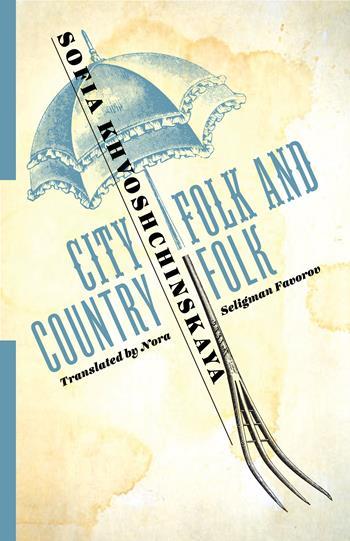#WITMonth Reading, part 1
August is Women in Translation Month, which honors the work of women authors in translation. To celebrate we thought we would share a few excerpts from new and notable titles from our list:
Sofia Khvoshchinskaya (1824-1865) and her writers sisters, Nadezhda and Praskovia, are often compared to their British contemporaries, the Brontë sisters. City Folk and Country Folk, translated by Nora Seligman Favorov, is the first of Sofia’s books to be translated into English. In a starred review Publishers Weekly said: “This consistently delightful satire will introduce readers to a funnier, more female-centric slant on Russian literature than they may have previously encountered.” You can read an excerpt here.
Julia Kristeva is best known for her critical work but has also written several novels. Teresa, My Love, translated by Lorna Scott Fox, mixes fiction, history, psychoanalysis, and personal fantasy, to tell the story of Sylvia Leclercq, a French psychoanalyst, who falls for the sixteenth-century Saint Teresa of Avila and becomes consumed with charting her life. You can read an excerpt here. Kristeva’s next novel, The Enchanted Clock, which blends detective mystery and historical fiction, will be published in December.
In The Fall of Language in the Age of English, translated by Mari Yoshihara and Juliet Winters, Japanese novelist Minae Mizumura lays bare the struggle to retain the brilliance of one’s own language in this period of English-language dominance. Publishers Weekly called the book: “An eye-opening call to consciousness about the role of language.” You can read the excerpt “Under the Blue Sky of Iowa: Those Who Write in Their Own Language” here.
A finalist for the 2011 Man Booker International Prize, Wang Anyi, as the New York Times Book Review noted, “is one of the most critically acclaimed writers in the Chinese-speaking world.” Her novel The Song of Everlasting Sorrow, translated by Michael Berry and Susan Chan Egan, is set in post-WWII Shanghai and follows the adventures of Wang Qiyao, a girl born of the longtong, the crowded, labyrinthine alleys of Shanghai’s working-class neighborhoods. You can read an excerpt here.
Set on the eve of the Rape of Nanjing—when Japanese troops invaded the historic capital city, massacred hundreds of thousands, and committed thousands of rapes—Ye Zhaoyan’s Nanjing 1937, also translated by Michael Berry, is a tender and humorous story of an impossible love and a lively, detailed historical portrait of a culture on the verge of rupture. You can read an excerpt here.
Like what you’ve read? Use coupon code WITMonth to save 30% when ordering these titles through our website throughout the month of August.




1 Response